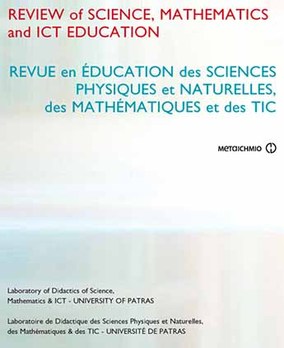Pre-energy reasoning in preschool children
Part of : Review of science, mathematics and ICT education ; Vol.3, No.1, 2009, pages 123-140
Issue:
Pages:
123-140
Abstract:
The research presented in this paper explores the degree to which preschool childrenhave the ability to use mental representations which constitute precursorenergy models. Twenty-five children (10 boys and 15 girls) participated in thestudy. They were presented with two different phenomenological situations consideredas important for the establishment of pre-energy reasoning: the movementof a toy car with the use of batteries and the movement of an identical car with theuse of a spring. The children were involved in personal, semi-structured interviews,which aimed at eliciting their explanations about the movement of the two cars.The analysis of children’s explanations reveals that they tend to explain the movementof cars in both phenomenological situations in naturalistic terms. These naturalisticexplanations were mainly agentive, that is they regard the batteries and thespring correspondingly as external agents causing the cars’ movement. The majorpercentage of agentive naturalistic explanations was given in terms of the functionof the objects under discussion, while a number of them were formulated in termsof distribution. These findings designate a developing understanding of physicalcausality and a pre-energy character in children’s reasoning, since they are capableof accounting for the two phenomenological situations in terms of object chains.Therefore, an attempt to introduce the aspect of energy transfer in preschool educationcould be considered.
Subject (LC):
Keywords:
causal reasoning, energy, naturalistic explanations, precursor models, preschool children, raisonnement causal, énergie, explications ‘naturalistiques’, modèles précurseurs, enfant de l’école maternelle
Notes:
Περιέχει σχήματα, βιβλιογραφία και προσαρτήματα, Ειδικό αφιέρωμα: Science Education Research and Theory in the Early Years




